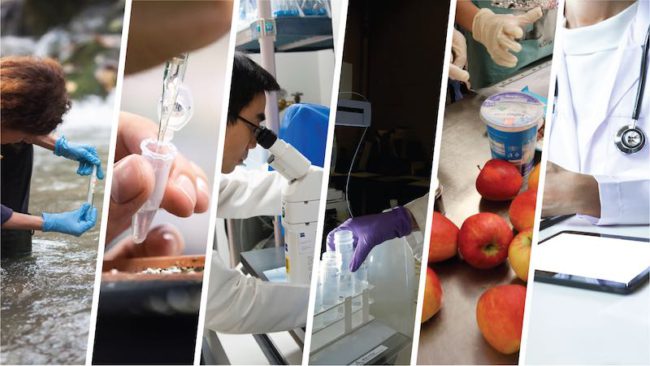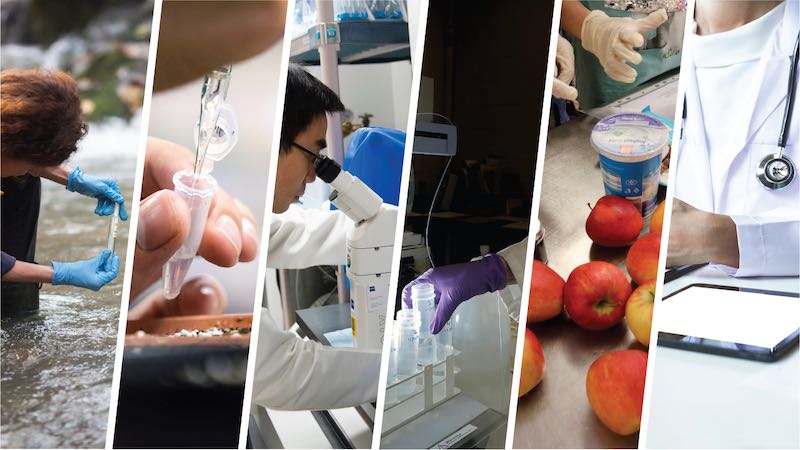
A couple of days ago (2nd Aug 2019) Pew released their latest data from a public poll of how much we trust scientific experts. Titled “Trust and Mistrust in Americans’ Views of Scientific Experts” it is actually rather encouraging.
What exactly did they find?
From a survey that they conducted in January 2019, they have now published the following findings …
In an era when science and politics often appear to collide, public confidence in scientists is on the upswing, and six-in-ten Americans say scientists should play an active role in policy debates about scientific issues, according to a new Pew Research Center survey.
The survey finds public confidence in scientists on par with confidence in the military. It also exceeds the levels of public confidence in other groups and institutions, including the media, business leaders and elected officials.
And of course they have an illustration as well. The focus concerns the bits in green bars below …

Not a Surprise: Politics plays a role
Given the rising tide of opposition to some science and evidence-based policy in general, then illustrating how deeply the political divide plays a role here is not exactly a shock.

Higher levels of familiarity with the work of scientists are associated with more positive and more trusting views of scientists regarding their competence, credibility and commitment to the public, the survey shows.
Overall, 86% of Americans say they have at least “a fair amount” of confidence in scientists to act in the public interest. This includes 35% who have “a great deal” of confidence, up from 21% in 2016.
But a partisan divide persists. More Democrats (43%) than Republicans (27%) have “a great deal” of confidence in scientists – a difference of 16 percentage points. The gap between the two parties on this issue (including independents who identify with each party, respectively) was 11 percentage points in 2016 and has remained at least that large since.
There are also clear political divisions over the role of scientific experts in policy matters, with Democrats more likely to want experts involved and to trust their judgment. Most Democrats (73%) believe scientists should take an active role in scientific policy debates. By contrast, a majority of Republicans (56%) say scientists should focus on establishing sound scientific facts and stay out of such policy debates. The two political groups also differ over whether scientific experts are generally better at making decisions about scientific policy issues than other people: 54% of Democrats say they are, while 66% of Republicans think scientists’ decisions are no different from or worse than other people’s. Finally, Democrats and Republicans have different degrees of faith in scientists’ ability to be unbiased; 62% of Democrats say scientists’ judgments are based solely on facts, while 55% of Republicans say scientists’ judgments are just as likely to be biased as other people’s.
They have a great deal of data across 6 sections …
To be precise, these 6 sections …
- Partisanship influences views on the role and value of scientific experts in policy debates
- Americans often trust practitioners more than researchers but are skeptical about scientific integrity
- Americans say open access to data and independent review inspire more trust in research findings
- Americans generally view medical professionals favorably, but about half consider misconduct a big problem
- Americans trust dietitians more than nutrition researchers but are skeptical of both groups’ transparency, accountability
- A majority of Americans have positive views of environmental scientists, but trust in them varies by politics
You can jump into specific sections by clicking the above links. Alternatively, you can get the entire 96 page report via this link.
What is clear is what we already know
There are specific hot-button topics that very closely align with the tribal divisions of party politics, namely Climate Change, Energy, and Environmental issues.
This is perhaps because a political identity is being permitted by many to (no pun intended) trump evidence-based knowledge.
Religious identify also perhaps plays a role here. Many, if not most, evangelicals lean Republican, and view the GOP to be part of their tribe. This religious faction are people who often reject basic scientific conclusions for some things and instead opt for an easier safer mythology on the basis of no evidence at all. Creationism is perhaps the primary example.
Stepping back from the political divide, what is also clear from the Pew poll is that specific non-political topics such as medicine, basic physics, or organic chemistry are not controversial. Think of it this way …
- If you had an appointment to see a doctor, and upon arrival were greeted by a Nuclear Physicist who had decided to have a go at medicine, how confident would anybody of any political stripe feel about that? (Hint: Appalled and shocked is the right answer)
- However, when faced with a Nuclear Physicist issuing negative claims regarding climate science, or the environment, many Republicans will often latch on to that as “evidence”, yet others will quite rightly pause and wonder what evidence is available (usually none).
What can I say except that we live in interesting times.
